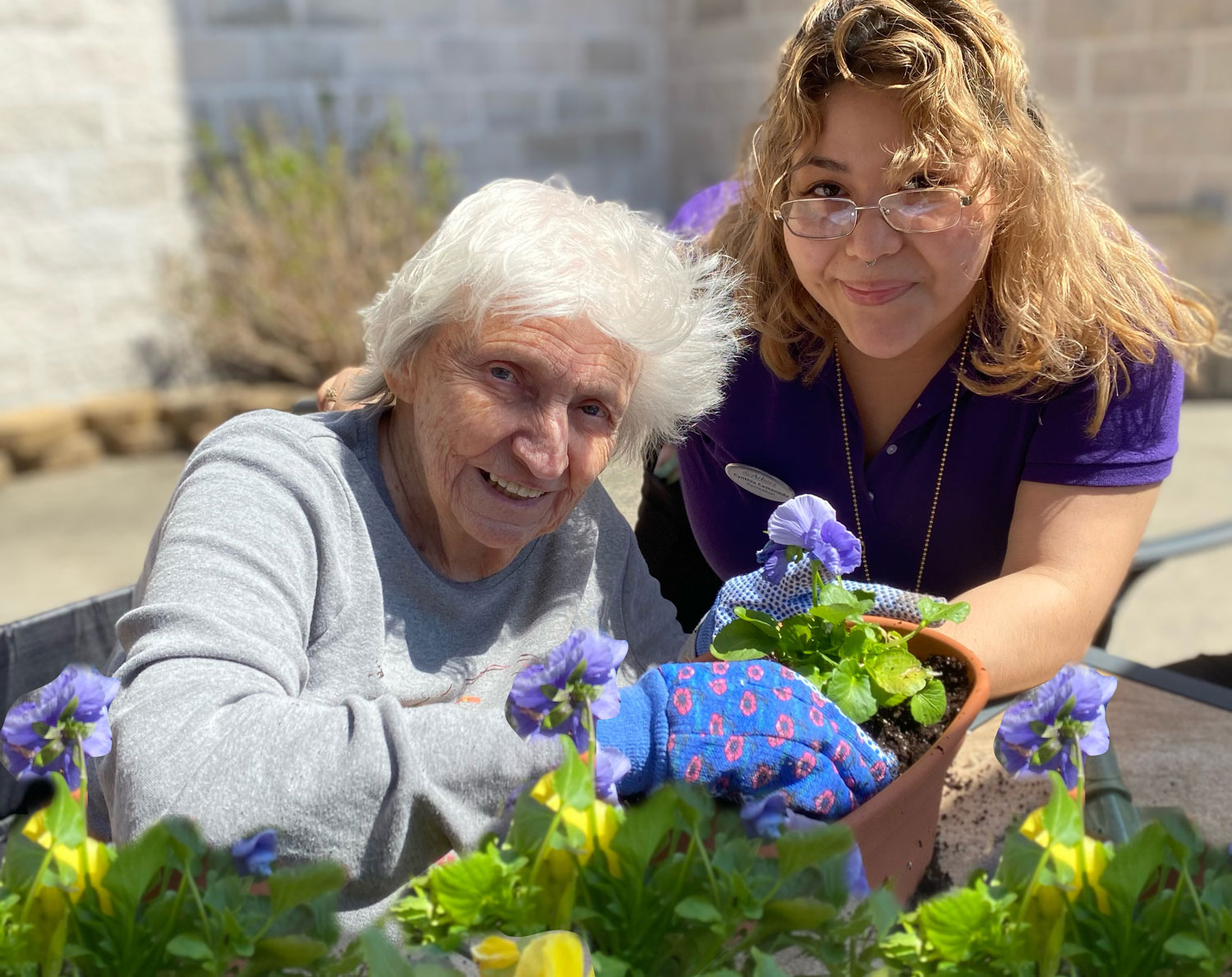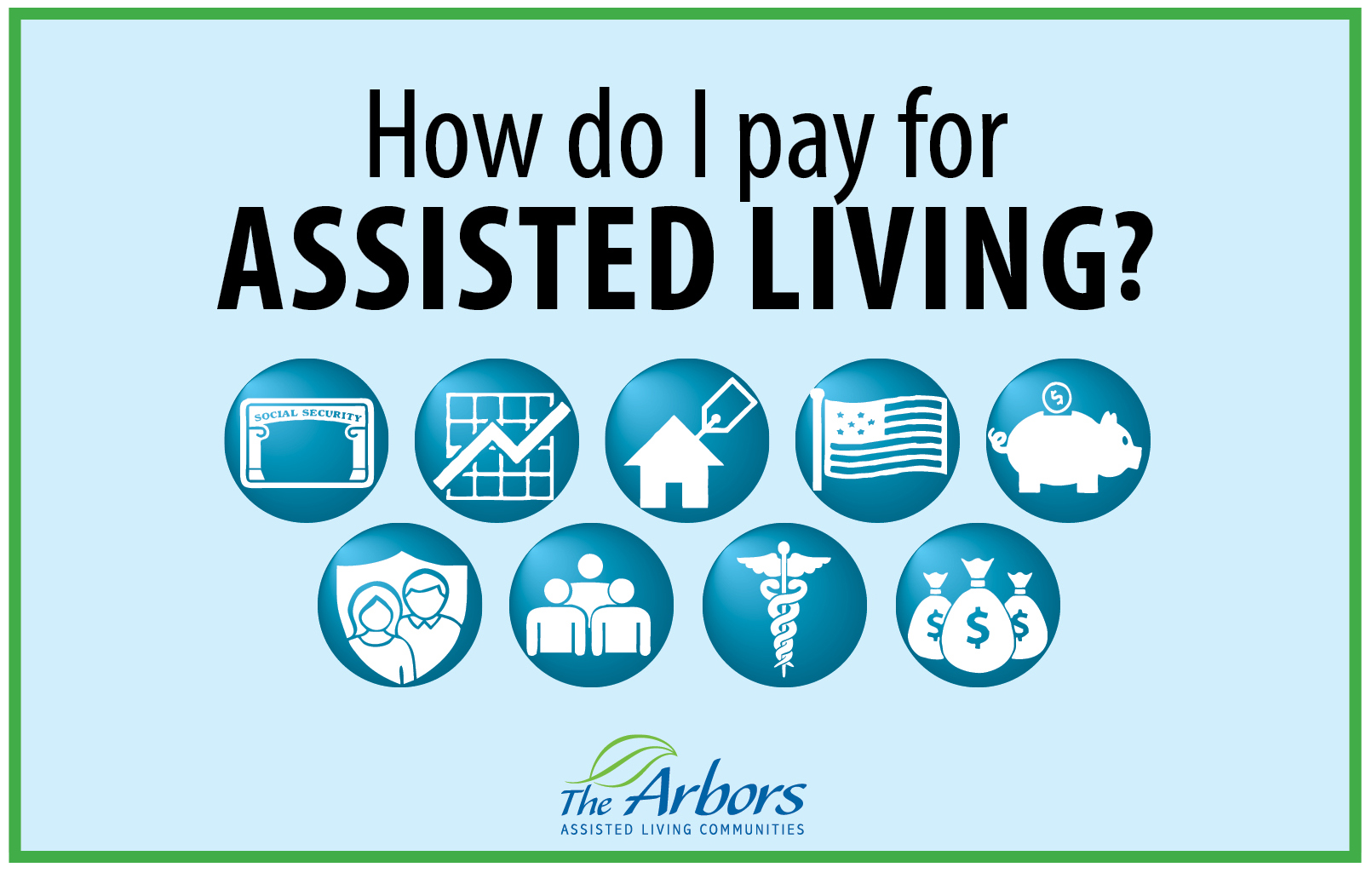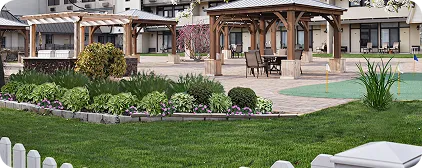(631) 778-7747
Horticultural Therapy for Those with Dementia

Horticultural Therapy for Those with Dementia
Whether or not you have a green thumb, there is still a lot to be gained by practicing horticultural therapy and working with plants. The creative and tactile experience of being near to nature is not only good for our well-being, but it may in fact help to relieve the symptoms associated with Alzheimer’s disease and other dementias. Gardening provides a non-pharmacological approach toward growth and self-improvement and may improve the quality of life for people who are living with dementia.
To help you care for a family member, we have compiled a list of the advantages of performing horticultural therapy with an individual that has dementia.
Improves your mood. An article published in the Journal of Cardiopulmonary Rehabilitation found that one of the benefits of horticultural therapy is that it improves mood. The study measured changes in total mood disturbance among cardiac rehab patients who participated in horticultural therapy, compared to a group that participated in patient education classes. Participants in horticultural therapy reported significant decreases in total mood disturbance, while it remained unchanged in the patient education group.
It can improve attention span. It’s common for those living with dementia to suffer from a decreased attention span. Giving them a job to do in the garden can streamline their focus and allow for better concentration. Whether this means letting them get their hands dirty and planting new blooms in planters, or picking and harvesting fruit and vegetables, it’s likely that you will see an increase in their attention span. This can then be transferred to other tasks they may struggle to carry out in daily life, such as sitting down to eat or reading a book.
It encourages sensory stimulation. A deterioration in eyesight and hearing is common as we grow older, but for those with dementia the condition can affect all five of their senses. For example, the brain regions that are responsible for scent are some of the first to be affected and so those with dementia tend to have difficulties recognising certain odours. Similarly, touch sensitivity decreases and depending on the extent of this, it can be difficult for those with dementia to feel pain or the difference between hot and cold. Gardening can awaken some of these senses, giving people with dementia the opportunity to get outside in the fresh air and experience the joy of nature.
Improves social skills. A number of studies illustrate the benefits of horticultural therapy for improving social and interpersonal skills. In addition to increasing social participation and promoting healthy interpersonal relationships, horticultural therapy improves self-awareness and helps individuals relate better to others.
Improves memory and cognition. One study found that horticultural therapy reduced attention fatigue and promoted a higher level of attention. It also improved alertness and concentration and lowered chronic stress, which can reduce the ability to learn and remember. Issues with memory and thinking aren’t uncommon among people in recovery, but the good news is that this is often reversible, and horticultural therapy can help.
Promotes emotional growth. According to Virginia Tech horticulture professor Diane Relf, horticultural therapy improves self-confidence and self-esteem, and it helps to improve self-control through the redirection of aggressive feelings. Horticultural therapy also promotes curiosity, rekindles interest in the future and satisfies the human creative drive.
Reduces stress. It’s commonly understood that engaging in gardening activities and interacting with nature reduces stress and lowers levels of the stress hormone cortisol. But research shows that horticultural therapy can also help the body learn to respond better to stress, reducing its negative effects like increased heart rate and blood pressure.
Nurturing mind, body, and spirit through gardening can even help a person function with more dexterity, independence, or confidence. By facilitating their best ability to function, you can help them be more than a care receiver—you can help them be a caregiver again too, as they water a garden, a pot of rosemary, or a tomato plant and tends to its health. It is a hobby that brings great joy and peace.
Dementia friendly design considerations
- Therapeutic gardens should contain familiar elements that are typical of the region and from previous stages of their lifetime.
- A therapeutic garden should allow daily access and an enclosed perimeter to discourage accidental wandering.
- Ensure that the garden is accessible, well lit, and structured to reduce disorientation. This includes eliminating dead-ends.
- Include safety features to reduce falls. Non-slip, even pathways and railings are excellent ways to help people who are living with dementia navigate the garden with ease.
- Include a variety of plants to promote visual, olfactory and tactile stimulation.
- Use trees to provide shade, and ensure protected seating areas so that people living with dementia can rest and socialize at will.
- Avoid planting any toxic plants.
Recent News

The Power of Touch
February 9, 2026

Winter Readiness for Caregivers: Do You Have a Plan?
January 6, 2026

Important Topics to Discuss With Local Assisted Living Centers
November 10, 2025

When It’s Time: Helping Your Parents Accept the Need for Assisted Living
October 15, 2025

How to Encourage an Aging Parent to Shower When They Refuse
July 2, 2025

How Do I Pay for Assisted Living
June 6, 2025

3 Signs You Should Consider Assisted Living
May 15, 2025
GET IN TOUCH
Let’s Talk About Making The Arbors Your Home
REQUEST A VISIT
Schedule a Tour of our Long Island Assisted Living Communities


















































